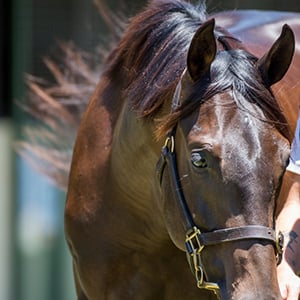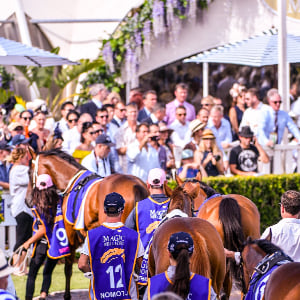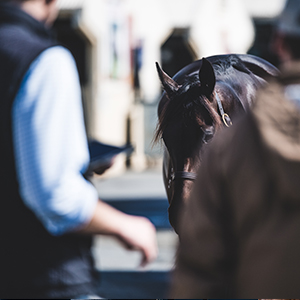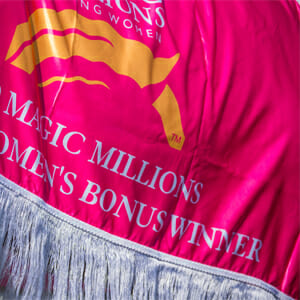MAGIC MILLIONS DISCLAIMER: This media release is provided to Magic Millions by Carrazzo Consulting. Please note this a copy of their release presented with their permission and the details of the release are the views and opinions of Carrazzo Consulting.
With the Australasian circuit of major yearling sales about to commence with the Magic Millions sale in early January, invariably this is the time of the year our office receives many enquiries from prospective and expanding racehorse owners along the lines of; “can I claim tax deductions and GST for my racehorse(s)?”
Now, at this juncture, let me emphasise that I am referring to tax deductions for players only involved with racing (referred to by the ATO as ‘stand alone’ racing), i.e. no breeding is or will be done in the future with the stock acquired.
The main authority for this question is the 2008 ATO tax ruling on the horse industry and relevant tax cases, which I will now comment on below.
ATO rules for claiming a racing ‘business’
To be able to claim racing expenses an income tax ‘business’ must be demonstrated to the ATO and whether a business is carried on is always a question of fact in any particular case. Nevertheless the 2008 ruling provides some general guidance on whether horse racing activities can, on their own, constitute the carrying on of a business.
The Ruling indicates that the racing of horses as a stand alone activity is difficult to demonstrate to the ATO and will not normally constitute the carrying on of a business because of the significant element of chance and the likelihood that the activity is a hobby or pastime.
Despite this, horse racing can be a business where system and organisation, rather than chance, drive the prospect of profit; and there is a reasonable expectation of commercial viability within a timeframe consistent with industry standards. A genuine intention to make a profit is not sufficient; there must be an objectively reasonable prospect of profit.
Some established ATO racing business indicators are:
- a significant commercial purpose or character to the activity more than just an intention to engage in business or to commence business;
- a profit motive and a prospect of realising a profit;
- repetition, regularity, size, scale and permanency;
- activity consistent with the ordinary trade in that line of business;
- activity planned, organised and carried on in a businesslike manner aimed at a profit;
- the activity is not just a hobby or recreation;
- the existence of a Business Plan demonstrating long term viability
- the keeping of proper records;
- registration of a business name;
- time expended on the activity;
- establishing a separate racing business bank account;
- the regular use of experts and consultants; and
- does the taxpayer exercise “control” of his/her stock?
The 2008 ATO ruling provides an example of what is not considered a stand alone racing business and for your reference I reproduce it below:
Example – A ‘hobby’ stand alone racing business (per TR 2008/2)
‘Joe runs a successful primary production business called Grow-N-Grow. Over the last few years, Joe has acquired several race horses. Although he is a keen follower of horse racing, Joe does not have any particular expertise in the buying, racing or training of horses. Joe’s horses are in work with a trainer who is also a good friend and who advised him on the purchase of the horses. Joe incurs expenditure on agistment, training fees and veterinary fees. Joe’s horses have achieved a few minor places in local country race meetings.
Joe does not have any clear objectives in regard to his horse racing activities other than to enjoy watching them race and hopefully sometimes win. He relies on his friend to manage the training of the horses. However, there are no plans to improve the performance or profitability of his current horses. In addition, Joe has no plans to buy additional horses or sell any of his current horses to improve the profitability of his activities.
The racing of the horses by Joe does not amount to the carrying on of a business of the racing of horses. The size and scale of the activity and the lack of system or organisation directed towards the making of a profit points towards his activities being no more than those of a keen follower of horse racing.
Therefore, Joe cannot deduct the expenses relating to his horses from his business income from Grow-N-Grow. The gross proceeds from the racing of the horses will also not be included in Joe’s assessable income.”
Proving a racing ‘business’ is not impossible!
The above highlights that demonstrating a stand alone racing business is a real challenge, but I hasten to add that the ATO’s current strict position is based on the relatively few cases where the deducting of racing expenses has been held to be a business. To date, all of these cases have been associated with breeding and training activities, none have been ‘stand alone’ racing activities.
The cases that the ATO rely upon in rebutting the existence of a stand alone ‘racing business’ have been overwhelmingly ‘hobby’ in nature, lacking most, if not all, of the above business indicators outlined above. I look forward to more ‘business like’ stand alone racing cases going before the courts so that the industry and tax community can have greater guidance on this vexed issue.
It is also worth noting that under the ATO ‘integration’ principle, the deducting of racing expenses is acceptable if the racing is ‘inherently connected’ to the business breeding activity (e.g. ‘home bred’ fillies are raced prior to breeding), but I’ll leave this discussion for another day..
Correction to recent Fairfax horse tax article
N.B. An article appeared in the Fairfax media on Sunday 8 December 2013 under the title of “Racehorse owners to fight Tax Office on ATO crackdown”. Whilst I wholly agree with the spirit of this article, I disagree with its contention that “Overturning years of industry practice, the Tax Office has ruled that breeders who also race their horses are not carrying on a business, meaning they may use the losses to reduce the tax bill payable on their other income.”
I’m unaware of any such ATO ruling and it clearly rebuts the ‘integration’ principle I briefly outlined above.
You are welcome to contact me if you wish me to clarify or expand upon any of the matters raised in this release.
End of release.
DISCLAIMER
Any reader intending to apply the information in this article to practical circumstances should independently verify their interpretation and the information’s applicability to their particular circumstances with an accountant specialising in this area.
Prepared by:
PAUL CARRAZZO CPA
CARRAZZO CONSULTING CPAs
339 WILLIAM STREET, WEST MELBOURNE, VIC, 3003
TEL: (03) 9982 1000
FAX: (03) 9329 8355
MOB: 0417 549 347
E-mail: [email protected]
Web Site: www.carrazzo.com.au





